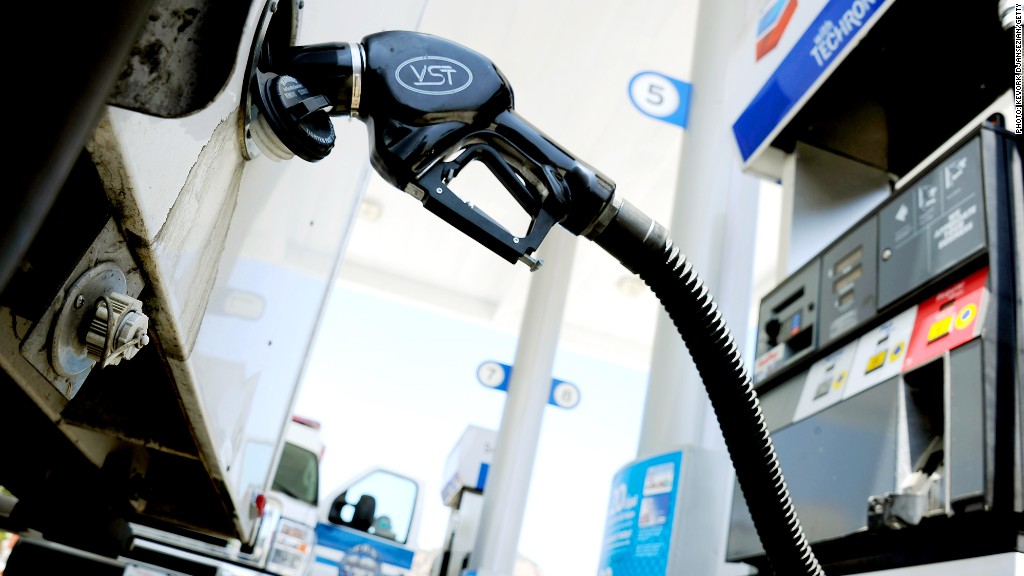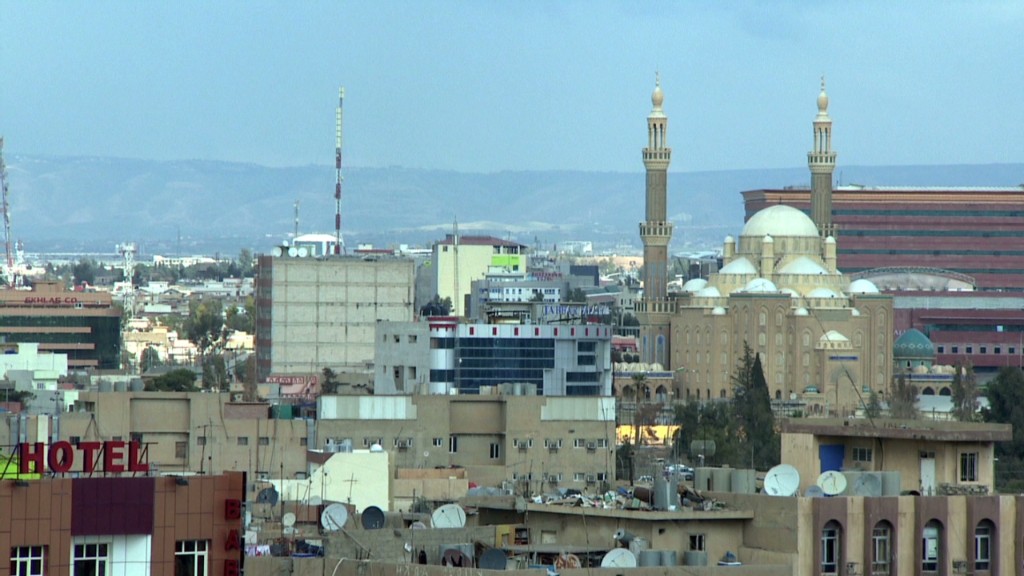
Oil prices are spiking on Syria tensions and oil outages across the broader region, but that doesn't mean gasoline prices will follow suit.
U.S. oil prices have soared nearly 8% in the last week alone, touching $112.24 a barrel in overnight trading -- their highest level in over two years.
The fear is that Western intervention in Syria over that country's suspected use of chemical weapons could engulf major oil producing countries in the region such as Iraq or Iran.
But crude has been gaining for weeks as a labor strike in Libya, widespread theft in Nigeria and ongoing problems in Iraq have taken at least a million barrels a day off the world market.
Gasoline prices, however, have been holding around $3.50 a gallon.
While they may tick higher in response to rising oil -- AAA's national average price rose 1.8 cents Thursday to $3.56 -- gas prices are on a longer-term, cyclical path down. The end of summer vacations means fewer Americans will be on the road, cutting demand. And as cooler temperatures mean less pollution risk, refiners can switch to "winter blends" of gas, which are cheaper to produce.
"If this were April, we'd be going ballistic," said Tom Kloza, chief oil analyst at GasBuddy.com. "But there are a lot of things beyond the Middle East that should act to keep gas prices temperate."
Related: Investors are overreacting to Syrian fears
Brian Milne, a refined fuels editor at Schneider Electric, agrees. Even though paper contracts for gasoline traded on the futures exchange are up 15 cents a gallon since Monday, Milne said the approaching fall should act to keep a lid on the retail cost at the pump.
"I don't think we'll see the full 15 cents go into it," he said. "We'll start seeing some relief in the gas market."
And that's a good thing. Rising gas prices take a big bite out of how much money consumers have to spend. Every one cent rise in gas prices, sustained for a year, results in a billion fewer dollars in Americans' collective pocket, said Chris Lafakis, a senior economist at Moody's Analytics.
Related: Big Oil stock rally may not last long
The result is less spending on all manner of goods, hurting the economy and stock prices. If gas prices rose as fast as oil prices have in the past week, and stayed there for a year, it would result in a consumer spending cut of $23 billion, said Lafakis -- or roughly a quarter the size of the stimulus-designed payroll tax holiday.

Moreover, gas price increases tend to have an outsized effect on consumer behavior. Posted in big numbers at every gas station in the country, consumers are keenly aware of every little price change. When they go up -- especially when they rise rapidly -- people tend to react immediately, and delay buying big ticket items like cars or homes.
Lafakis calls the relationship "nonlinear." A non-economist might use the term "freak out."
Fortunately, Lafakis also thinks the recent oil price spike will be short lived.
Of course, if Iran or Iraq actually do get dragged into a broader conflict and oil prices shoot past $120 a barrel, all bets are off.


